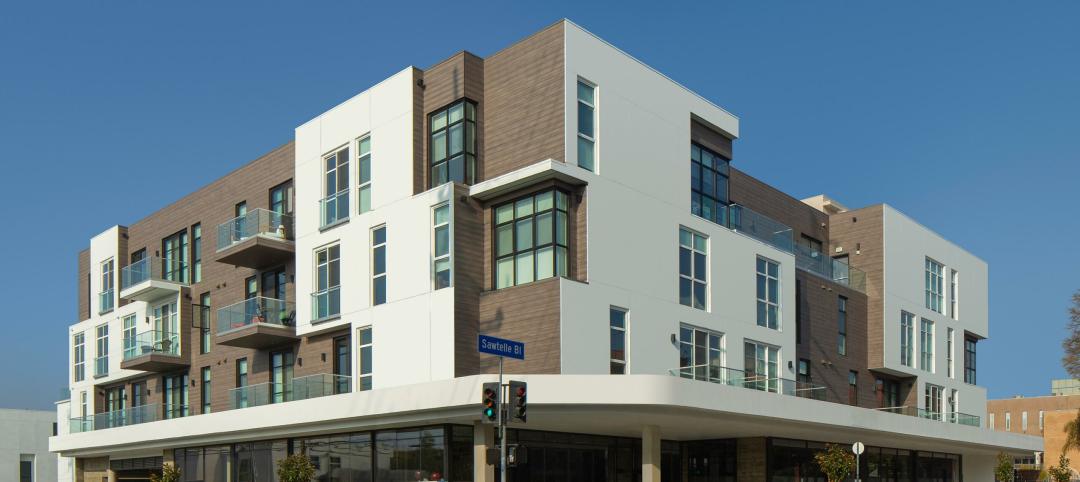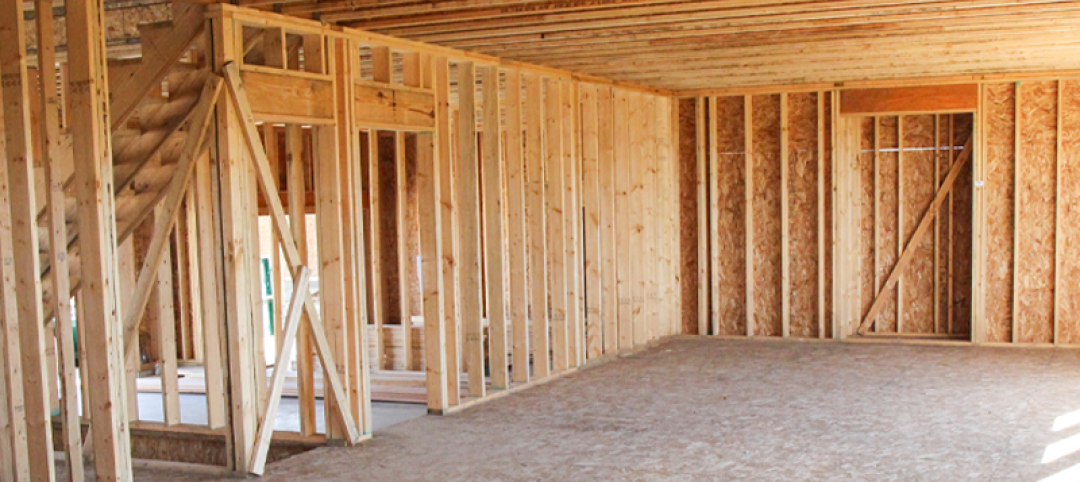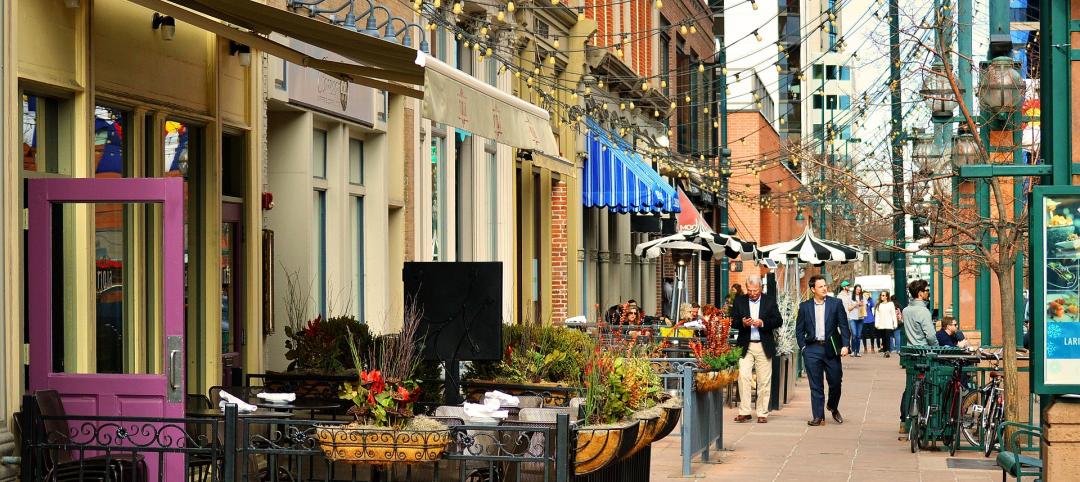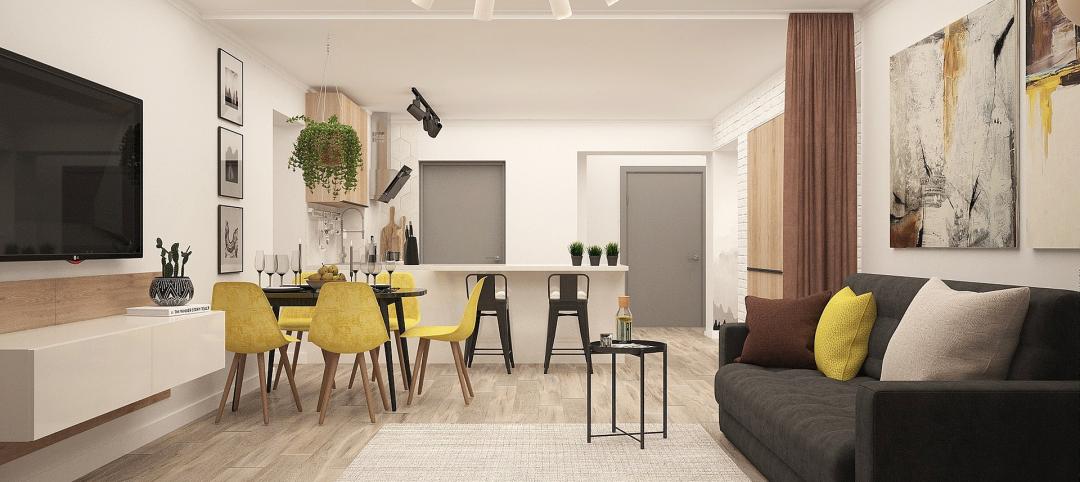Since November, Stage 3 Properties—which designs, markets, and manages rental properties in partnership with developers and investors—has been leasing Ollie at Carmel Place, a 55-unit building that is New York City’s first micro-unit multifamily development, with apartments ranging from 260 to 360 sf.
Stage 3’s “Ollie” platform offers renters the option of fully-furnished studios and shared suites, as well as access to amenities in nearby facilities that include work spaces, juice bars, pools, gyms, spas, and lounges. Ollie will even help renters find suitable roommates through its Bedvetter service.
The “all-inclusive” experience that Ollie is marketing also includes hotel-like services such as housekeeping. This week, Stage 3 announced the signing of a multiyear agreement with Hello Alfred, a personal butler and on-demand concierge service that, starting next month, renters at Carmel Place can sign up for and access through a mobile app.
Hello Alfred is a weekly subscription service that sends a background-vetted “Home Manager” to a renter’s home to take care of basic house cleaning (bed making, kitchen cleanup, etc.), laundry, dry cleaning, clothing and shoe repair, package shipping, and grocery shopping. The service starts at $32 per week.
Ollie is now Hello Alfred’s sole micro-unit partner, and charges for the services provided are already included in the quoted rents for residents.
Alfred’s CEO, Marcela Sapone, told BloombergBusiness that customers at other apartment buildings have used the service for everything from organizing receipts and meeting a cable repair person to refilling a Koi pond. If the helper isn’t able to tackle a particular job—such as plumbing or professional cleaning—he or she will find someone who can for the renter.
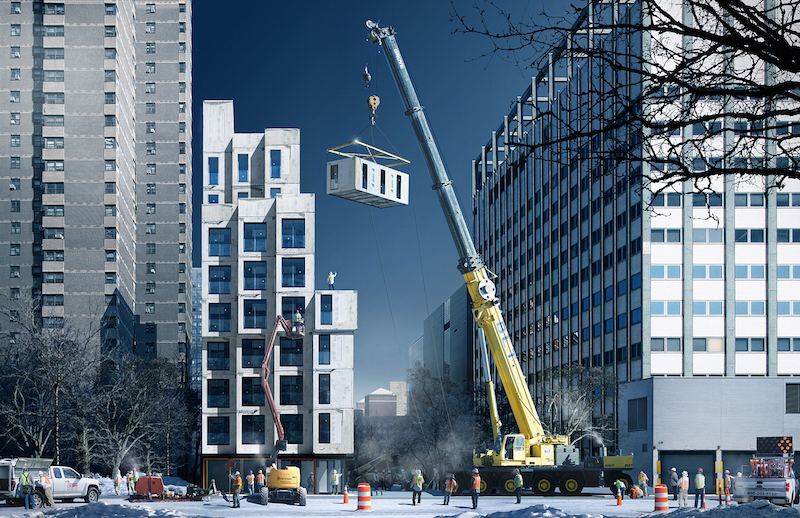
Monadnock Development assembled Ollie Carmel Place with factory-built modules for the micro apartments. The building in New York will be ready for renters to move into in the first quarter of 2016. Photo courtesy Monadnock Development.
Rents at Carmel Place run up to $3,150 per month, but 22 apartments are more affordably leased. “Carmel Place is a perfect fit for Ollie,” Chris Bledsoe, Stage 3’s Founding Partner, told Curbed NYC. “With 40% of the units allocated to low- and middle-income New Yorkers, the message of ‘inclusiveness’ is already an integral part of the community and the experience at the building. Additionally, the small unit sizes at Carmel Place afforded us an opportunity to demonstrate to the world that efficient units don’t inherently require a reduction in quality of life.”
Ollie at Carmel Place—which was once going to be called My Micro NY—was designed by nARCHITECTS and developed by Monadnock Development, which assembled the building from modular components. The development cost was $16.7 million.
Stage 3’s next market could be Los Angeles, according to its website. Hello Alfred currently has locations in New York, Boston, San Francisco, and L.A.
Related Stories
Adaptive Reuse | Jul 27, 2023
Number of U.S. adaptive reuse projects jumps to 122,000 from 77,000
The number of adaptive reuse projects in the pipeline grew to a record 122,000 in 2023 from 77,000 registered last year, according to RentCafe’s annual Adaptive Reuse Report. Of the 122,000 apartments currently undergoing conversion, 45,000 are the result of office repurposing, representing 37% of the total, followed by hotels (23% of future projects).
Multifamily Housing | Jul 25, 2023
San Francisco seeks proposals for adaptive reuse of underutilized downtown office buildings
The City of San Francisco released a Request For Interest to identify office building conversions that city officials could help expedite with zoning changes, regulatory measures, and financial incentives.
Sponsored | Multifamily Housing | Jul 20, 2023
Fire-Rated Systems in Light-Frame Wood Construction
Find guidance on designing and building some of the most cost-effective, code-compliant fire-rated construction systems.
Multifamily Housing | Jul 13, 2023
Walkable neighborhoods encourage stronger sense of community
Adults who live in walkable neighborhoods are more likely to interact with their neighbors and have a stronger sense of community than people who live in car-dependent communities, according to a report by the Herbert Wertheim School of Public Health and Human Longevity Science at University of California San Diego.
Affordable Housing | Jul 12, 2023
Navigating homelessness with modular building solutions
San Francisco-based architect Chuck Bloszies, FAIA, SE, LEED AP, discusses his firm's designs for Navigation Centers, temporary housing for the homeless in northern California.
Sponsored | Fire and Life Safety | Jul 12, 2023
Fire safety considerations for cantilevered buildings [AIA course]
Bold cantilevered designs are prevalent today, as developers and architects strive to maximize space, views, and natural light in buildings. Cantilevered structures, however, present a host of challenges for building teams, according to José R. Rivera, PE, Associate Principal and Director of Plumbing and Fire Protection with Lilker.
Mass Timber | Jul 11, 2023
5 solutions to acoustic issues in mass timber buildings
For all its advantages, mass timber also has a less-heralded quality: its acoustic challenges. Exposed wood ceilings and floors have led to issues with excessive noise. Mass timber experts offer practical solutions to the top five acoustic issues in mass timber buildings.
Multifamily Housing | Jul 11, 2023
Converting downtown office into multifamily residential: Let’s stop and think about this
Is the office-to-residential conversion really what’s best for our downtowns from a cultural, urban, economic perspective? Or is this silver bullet really a poison pill?
Adaptive Reuse | Jul 10, 2023
California updates building code for adaptive reuse of office, retail structures for housing
The California Building Standards Commission recently voted to make it easier to convert commercial properties to residential use. The commission adopted provisions of the International Existing Building Code (IEBC) that allow developers more flexibility for adaptive reuse of retail and office structures.





